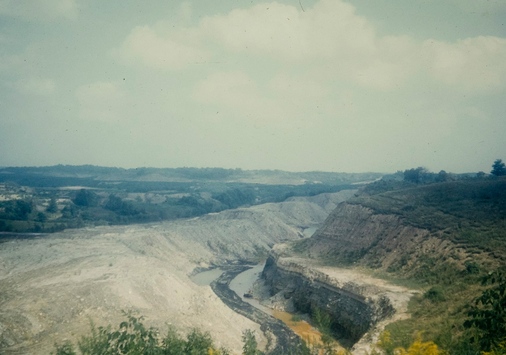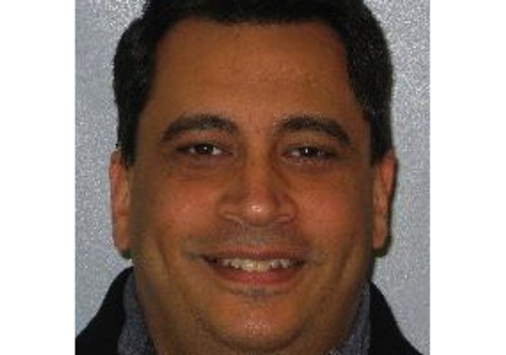Courses
2024 - 2025
For this academic year's course catalog, please visit our Academic Catalog site. For courses currently offered, please refer to the Schedule of Classes.
In this course, students consider environmental problems through the lenses of many different academic disciplines. The purpose of this approach is two-fold: 1) to enhance the student’s understanding of environmental issues as multi-dimensional dilemmas, and 2) to evaluate and promote sustainable alternatives to business-as-usual. In the first part of the course, students consider the human relationship with the non-human world, including problems of ethics, social and psychological connections with nature, ecological services, and common pool resources. The subsequent sections address historical and current environmental concerns, including population growth, food systems, resource limitation, pollution, biodiversity, and environmental justice. We explore sustainable solutions, remedies, and actions, including regulation and law, restoration, and sustainable lifestyles. The laboratory component of the course exposes students to local and regional environmental geographies, problems, and tools for sustainable solutions. Field trips, guest speakers, and films emphasize the necessity of multidisciplinary integration in the design of sustainable environmental systems.
In this course, students will learn and practice different methods of addressing environmental questions and expressing environmental perspectives. Central themes are writing and quantitative analysis: for each of the topics and methods used, students will gain experience with a variety of professional writing styles and analytical approaches. Environmental issues will be investigated through both quantitative and qualitative methods of data collection and statistical analysis, along with a variety of writing styles. Students will also examine the human connection with the nonhuman world through the use of media and spatial representation. Through successful completion of this course, students will have applied a variety of methods to the analysis of environmental issues. Prerequisite: SES 100.
Renewable Energy Systems provides students with a comprehensive overview of the different alternative energy systems that are in use today. The course will introduce the basic scientific and engineering concepts used in designing and analyzing different energy technologies. Some emphasis will be placed on real-world applications of such technologies through the introduction of several case studies related to the field.
Imagine the world in five years. The Sustainable Development Goals (SDGs) are a part of the United Nations’ 2030 Agenda to create a healthier, more peaceful, and prosperous planet for all. The international community created the SDGs as both a guide for future development as well as an urgent call to action to address today’s most pressing global challenges. All SDGs are inherently interrelated and difficult to unravel, for example, SDG13 Climate Action includes creating both: SDG11 Sustainable Cities and Communities and SDG7 Affordable and Clean Energy. Moreover, many argue climate change is the result of severe global inequality and unsustainable consumption and production, addressed by SDG10 and SDG12 respectively. Nonetheless, the SDG framework breaks these global challenges down in a way that productively channels resources and focuses attention on more targeted solutions. This course will examine the creation, history, and evolution of the SDGs as well as the myriad solutions being implemented at the state level, and across civil society and the private sector to address the SDGs. Students in this course will explore an SDG of interest in-depth through a series of oral presentations & projects focusing on existing solutions to these pressing global challenges. Students will therefore gain both depth and breadth of knowledge about the SDGs and 21st century integrated sustainability value creation.
This course is an introduction to the concepts and uses of Geographic Information Systems (GIS) with particular application to environmental issues. The course consists of laboratory exercises on GIS data structures and sources of data, on the use of specific GIS tools, and on practical applications of GIS to real-world tasks. The student will gain skills in spatial data analysis, map generation, and data presentation using ArcGIS software. After successful completion of this course, students who wish to develop advanced GIS skills may enroll in SES 223.
This course is intended to give the student experience with advanced GIS applications. The focus will be on novel analyses of spatially explicit data about real-world environmental issues.
Prerequisite(s): GEOS 222, ENVS 222, or SES 222.
This course gives students a chance to explore the realm of proactive change in the environmental arena. It combines the theories of policy, the tools of problem-solving, and the practice of dealing with environmental challenges in the real world of the American government. The premise of the course is this: if you want to improve the state of the planet, you have to propose a solution. To make a solution happen, you should understand the process of getting an idea through the decision-making system. Effecting change requires a background in the system(s) that make things happen, whether you ultimately want to work within the system or outside it. This course is divided into two main components: an overview and implementation of problem-solving techniques, and an in-depth examination of the U.S. Congress' role in environmental policy formation. The latter section culminates in a "Moot Congress" undertaken by students at the end of the semester. Not recommended for first-year students.
Every human being has an intimate relationship with food, often with deep emotional facets. Yet we in the U.S. know very little about the food system that sustains us – it is a mysterious and often invisible set of processes, organizations, and people. This remarkably complex web of inputs, labor, machinery, laws, subsidies, mergers, and so many other components is one that we take largely for granted. This class seeks to align that reality with another: we are an intensely visual species. A critical part of our existence that we experience through all of our senses is one we fail to comprehend through our primary sense. And we have this occasion to use sight in a formalized way – photography – to tell new stories, and to bring an artistic sensibility to our understanding of food, and perhaps ourselves. Through imagery, writing, and the curatorial process of exhibiting our work in a public setting, we have a truly unique opportunity. Our immersion in these critical issues can bring full circle the understanding we gain through many eyes to enhance awareness in other people about how our food system connects us all.
An in-depth investigation of alternative dispute resolution (ADR) as an improved means to affect change in environmental conflict. Both an intellectual and hands-on introduction to the theory and practice of ADR, relying on research into theoretical aspects of conflict, attendance at both conventional litigatory and ADR hearings, and actual participation in ADR exercises.
This course examines a variety of local environmental planning processes and issues, focusing primarily on the communities surrounding Denison (Granville, Licking County), as well as the theories, concepts, and tools of design, both at a community level and for individual buildings. Particular attention will be paid to controversial models of architecture and planning to understand some of the negative implications of conventional approaches. Field trips, group exercises, research, and project competitions will form the basis for course evaluation.
Many of Earth's ecosystems are stressed and degraded as a result of human activities. Ecosystem management is the process of evaluating the biotic and abiotic features of ecosystems and stressors and manipulating those features toward a defined goal, such as conservation or restoration. In this course, students will apply aspects of systems ecology to management scenarios in particularly stressed ecosystems. Students will gain an understanding of systems ecology and will learn how ecological communities function within ecosystems and landscapes. After establishing this foundation, students will lead the exploration of some of our planet's greatest ecological systems. Lab sessions will allow students to construct a computer-based simulation of an ecosystem and to apply ecological modeling as a management tool in both lab and field settings.
This course introduces the conceptual frameworks of ecofeminism and ecowomanism, exploring how environmental issues impact vulnerable communities and in particular, women of color. It uses an intersectional race-gender-class approach to help students analyze ecofeminist and ecowomanist principles around views of nature, spirituality, human and non-human relations, capitalism, indigeneity and ongoing colonization, globalization, and various forms of activism. Students will work toward understanding both ecofeminist and ecowomanist theoretical frameworks and their application in their own lives. This is a special topics course crosslisted with WGST 280 and BLST 280.
This is a special topics course crosslisted with REL 282.
“What should I eat?” is both a familiar and ethical question. It’s not surprising that ethics, a discipline that focuses on questions about what we should do, has a lot to say about our food. In this course, we will cover arguments for diets that are organic, locavore, vegetarian, and vegan. We will also examine topics such as food aid, autonomy, and identity. We will explore these topics for their own sake, and to gain insight into broader questions in ethics such as the scope of morality, the limits of moral obligation, and the most plausible general theory of ethics. We will also encounter ambiguous terminology in discussions of food, such as “natural,” “sustainable,” “organic,” “healthy,” “obese,” “local,” and “authentic.” The problem with such terms is that each has multiple meanings with varying (and sometimes conflicting) significance for ethical decision-making. We aim to better understand what these terms mean in different contexts and how their meanings are constructed so that we can productively articulate ethical food recommendations. This is a special topics course.
Crosslisting: PHIL 294.
How can you extend your passion for environmental issues beyond Denison? How do the knowledge and skills developed in your liberal arts education translate into a meaningful and fulfilling career? In this course, you will take stock of your own experiences and consider potential professional trajectories. We will survey a wide variety of environmentally relevant career paths, including sustainable business, nonprofit organizations, government and public service, academia and research, and the legal and financial sectors. For each, we will review underlying principles, consider the current state of the field, conduct self-assessments, and connect with Denison alumni who currently work, or have worked, in that realm. This course adheres to Denison’s Academic Credit policy.
Prerequisite(s): Declared SES majors or minors only.
This core major course is primarily for SES majors; minors are welcome. This course provides the opportunity for students to gain hands-on experience working on real-world environmental problems. As a group, students work in an intensive format with a real "client" and real deadlines to research a problem, assess options, recommend solutions, and evaluate outcomes. Examples of projects include energy and water conservation, local land use planning, wetlands management, reuse/recycling programs, agriculture preservation, and environmental education. Should be taken during the junior year.
Prerequisite(s): ENVS or SES 202, ENVS/SES major or minor.
This course is a comprehensive study of wetland ecology, management, and policy. The main emphasis is on biological, chemical, and physical aspects of major wetland ecosystems found in North America. The course also deals with valuation, classification, and delineation of wetlands. A significant portion of the course focuses on local and regional wetland ecosystems: their history, ecology, and current status. Labs will be field-based explorations of the biology, chemistry, and ecology of these regional wetlands.
Prerequisite(s): BIOL core or consent, and CHEM 131.
Crosslisting: BIOL 310.
This course will expose students to the purposes and methods associated with sustainable agriculture. We will do this through readings, discussion, and experience on local and sustainable farms. Throughout the semester we will reflect on the social, economic, and environmental aspects associated with sustainable agriculture as well as actual practices affiliated with the modern sustainable agriculture movement. Students must be prepared to commit to working on farms each week as part of the lab requirement of this course.
Human health is intimately linked to the natural systems on which it depends. With advances in technology, agriculture, and health knowledge, humans are living longer than ever. However, those same technologies have pushed planetary systems to a breaking point. This class seeks to elaborate a path forward that recognizes the profound impact human ‘progress’ has on our planet and the reciprocal impact changes in natural systems will have on the future of human health. Crosslisted with GH 352.
Prerequisite(s): GH 100.
This course is required for SES majors with senior standing unless they are pursuing senior research (SES 451/452 or equivalent). This course provides an integrating and culminating experience for students, individually or in small groups, to engage with an environmental issue, either by conducting research related to this issue or by taking action on it in a way that is informed by their academic understanding. The primary objective is for each student to integrate their study of environmental issues at Denison and to develop skills in critically analyzing environmental problems and promoting environmental change. A primary focus is on writing: crafting a project proposal, communicating objectives and cogent arguments, reviewing and incorporating relevant literature, analyzing results, and synthesizing conclusions. Students will have the opportunity to hone a major written work through several stages and to provide and receive peer review on written work.
Prerequisite(s): SES core and SES 301, or consent of instructor.
This course provides an examination of various economic issues facing business and government regarding the use of natural resources and the management of environmental quality. Students will develop an understanding of both the economic nature of environmental problems and the economic tools necessary to explore and devise potential policy solutions for environmental problems. In addition, students will examine the institutional framework within which environmental problems exist to understand those factors that may mitigate against economic solutions. The course fulfills the SES Social Science requirement.
Prerequisite(s): ECON 302.
Crosslisting: ECON 427.
Independent research arranged with a faculty advisor.
Independent research arranged with a faculty advisor. SES 452 is the continuation of SES 451.














